Search
What are you looking for?

A. Brief Overview of Precision Machining:
Precision machining is a manufacturing process that involves the use of cutting tools to remove material from a workpiece to achieve tight tolerances and high levels of accuracy. It is employed to create intricate and precisely shaped parts or components. CNC Precision Machining specifically refers to the use of Computer Numerical Control (CNC) machines in this process. These machines are automated and follow programmed instructions to carry out precise movements and cuts, resulting in consistent and repeatable manufacturing.
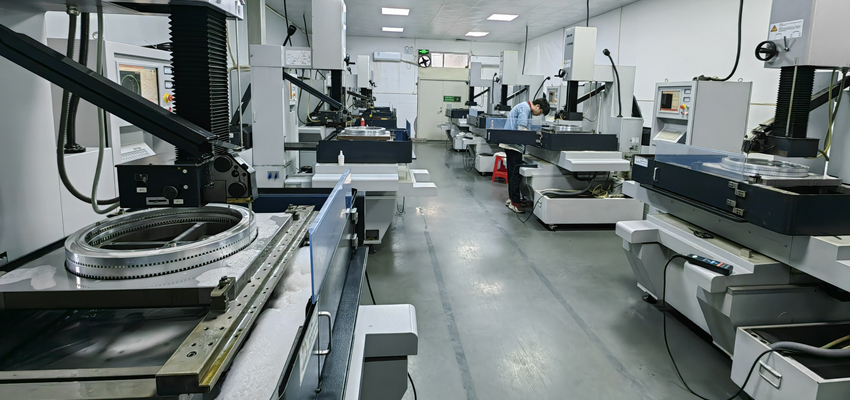
The key steps involved in CNC Precision Machining include the creation of a detailed 3D model using Computer-Aided Design (CAD) software, the conversion of this model into machine-readable code (G-code), and the execution of the programmed instructions by CNC machines. The materials commonly used in precision machining include metals, plastics, and composites.
B. Importance of Precision Machining in Various Industries:
Aerospace Industry: Precision machining is crucial in aerospace manufacturing to produce components with high strength-to-weight ratios, intricate shapes, and strict adherence to safety standards. CNC machining ensures the precise fabrication of aircraft parts, engines, and other critical components.
Automotive Industry: In the automotive sector, precision machining is vital for producing engine components, transmission parts, and various other critical components. The accuracy and consistency provided by CNC machining contribute to the overall performance and reliability of vehicles.
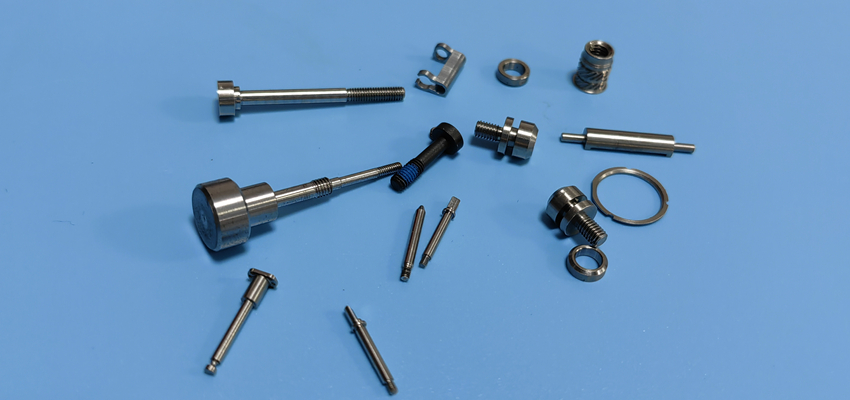
Medical Industry: Precision machining plays a crucial role in the production of medical devices and implants. The high accuracy and repeatability of CNC machining are essential for creating custom parts that meet strict medical standards.
Electronics Industry: Precision machining is used to manufacture intricate electronic components, circuit boards, and connectors. The precision and consistency offered by CNC machines are essential for ensuring the functionality and reliability of electronic devices.
Tool and Die Industry: Precision machining is fundamental in the production of molds, dies, and tooling used in various manufacturing processes. CNC machines allow for the creation of complex and accurate tooling that is critical for mass production.
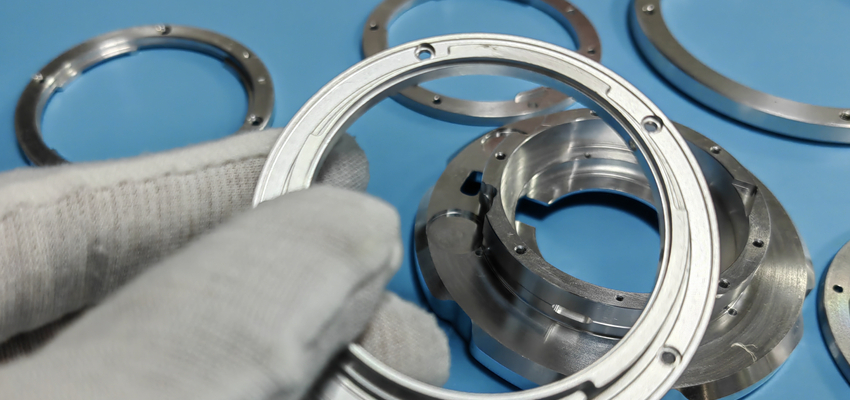
General Manufacturing: Precision machining is widely applied in general manufacturing for creating a wide range of components, from small intricate parts to large structural elements. CNC machining contributes to efficiency, cost-effectiveness, and the ability to meet tight tolerances in diverse manufacturing processes.
Overall, CNC Precision Machining is a cornerstone of modern manufacturing, enabling industries to produce high-quality, complex, and customized components with precision and efficiency. Its importance lies in its ability to meet stringent specifications, enhance product performance, and support advancements in various sectors.
Common types of precision machining include various processes that use computer-controlled tools to remove material from a workpiece, creating precise and accurate parts. Here are some of the common types:
CNC Milling:
Overview: CNC milling involves using rotating cutting tools to remove material from a workpiece. It can be used for a wide range of applications, including creating flat surfaces, slots, and complex 3D shapes.
Process: CNC milling machines can operate in multiple axes, and the cutting tool moves along the workpiece to shape it according to the programmed design.
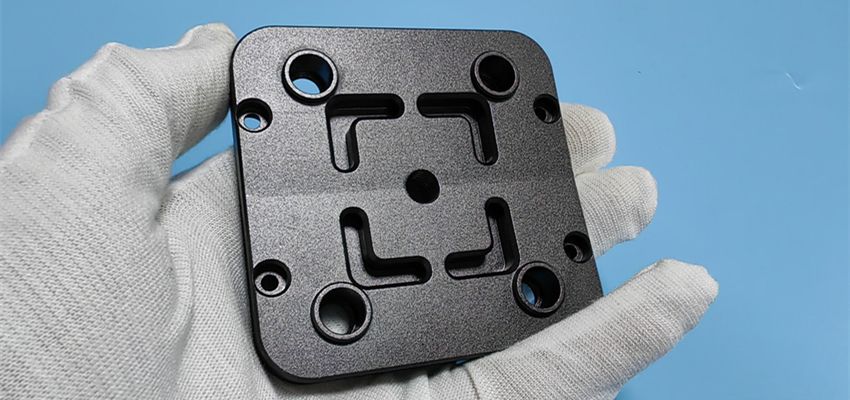
CNC Turning (Lathe Machining):
Overview: CNC turning, or lathe machining, involves rotating the workpiece while a cutting tool removes material to create cylindrical or conical shapes. It is commonly used for producing shafts, pins, and other cylindrical components.
Process: CNC lathes are versatile and can perform various operations such as facing, turning, and threading.
.png)
Grinding:
Overview: CNC grinding is a precision machining process that uses abrasive grinding wheels to remove material from the workpiece. It is commonly used for achieving tight tolerances and high surface finish on hardened materials.
Process: CNC grinding machines can be used for surface grinding, cylindrical grinding, and other specialized grinding operations.
Drilling:
Overview: CNC drilling involves creating holes in a workpiece using rotating cutting tools. It is a fundamental machining process used in a variety of applications.
Process: CNC drilling machines can be programmed to drill holes of different sizes and depths in precise locations on the workpiece.
EDM Machining (Electrical Discharge Machining):
Overview: EDM machining uses electrical discharges to remove material from a workpiece. It is particularly useful for machining complex shapes and hardened materials.
Process: CNC EDM machines use controlled electrical discharges between an electrode and the workpiece to erode material and create the desired shape.
CNC Swiss Machining:
Overview: swiss precision machining, or Swiss turning, is a type of precision machining that is well-suited for small, complex, and high-precision parts.
Process: The workpiece is held in a collet and is rotated while the cutting tools move in the Z-axis. This type of machining is often used for long, slender parts with tight tolerances.
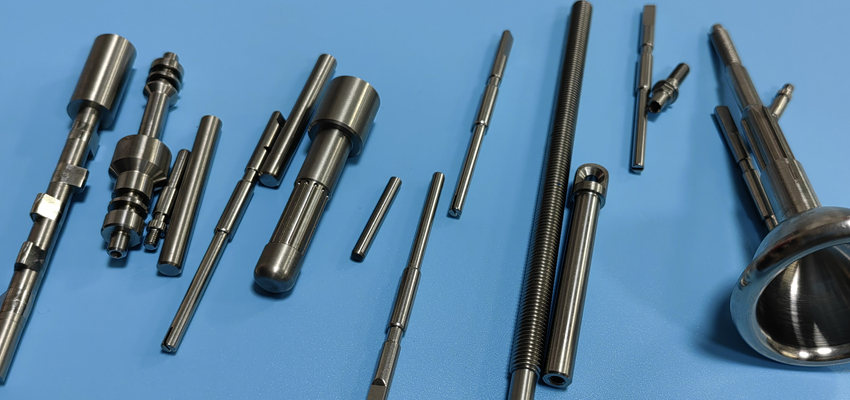
CNC Screw Machining:
Overview: Custom screw machining is a versatile precision machining method used for the production of turned parts. It is suitable for high-volume production of small to medium-sized parts.
Process: Screw machines are automatic lathes that can perform various cutting operations, such as turning, drilling, and threading, in a single setup. They are often used for producing screws, bolts, and other threaded components.
Micro Machining:
Overview: Micro machining involves the production of extremely small parts and features with high precision. It is commonly used in industries such as electronics, medical, and aerospace.
Process: custom micro machining utilizes CNC machines with high-resolution movements and specialized cutting tools to achieve sub-millimeter or even sub-micron level precision. Applications include microelectronics, microfluidics, and miniature components.
CNC Precision Machining is a versatile manufacturing process that can be applied to a wide range of materials. Here are common materials used for CNC Precision Machining, categorized into metals:
Aluminum Machining:
Renowned for its lightweight and corrosion resistance, our custom Aluminum Machining processes excel in delivering precise components for the aerospace, automotive, and electronics industries. Our expertise ensures optimal performance and durability in every aluminum part.
Properties: Lightweight, corrosion-resistant, and exhibits good machinability. Widely used in aerospace, automotive, and general engineering applications.
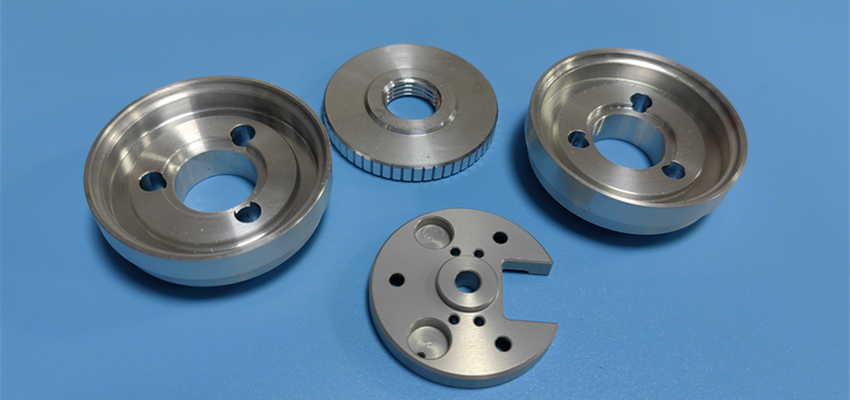
Brass and Copper Machining:
Discover the timeless allure of Brass and Copper Machining at Falcon. Our processes enhance the conductivity and aesthetic appeal of these materials, producing intricate components tailored to your specifications. Elevate your projects with the classic sophistication of brass and copper.
Brass and Copper Properties: Brass is corrosion-resistant, has a golden appearance, and offers good machinability. Used for decorative applications, electrical components, and precision parts. Copper has excellent electrical conductivity, corrosion-resistant, and malleable. Commonly used in electrical components, heat exchangers, and connectors.
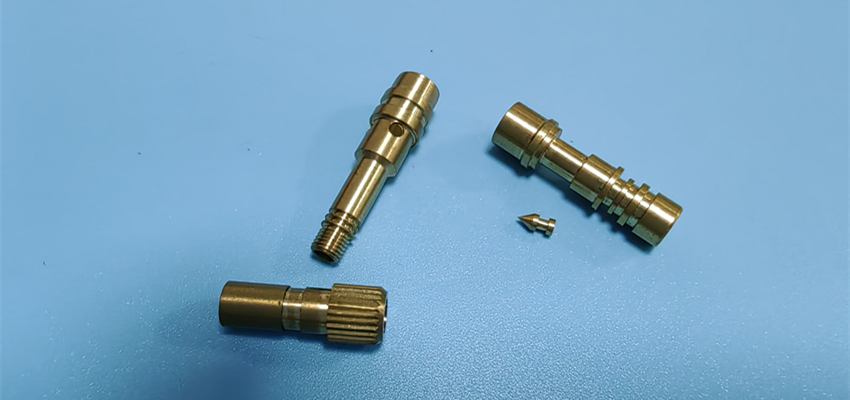
Plastics Machining:
Versatility meets precision in our custom plastic machining services. Whether for medical devices or consumer electronics, Falcon specializes in producing custom plastic components. Count on us to deliver solutions that meet the unique demands of diverse industries, where precision is paramount.
These materials such as Acrylic (PMMA), Polyethylene (PE), Polypropylene (PP), Nylon (Polyamide), Delrin (Polyoxymethylene - POM) etc cover a broad spectrum of properties, allowing CNC Precision Machining to meet the specific requirements of different industries and applications.
Stainless Steel Machining:
Experience the strength and corrosion resistance of stainless steel through our specialized machining processes. At Falcon, we tailor Stainless Steel Machining to meet the exacting standards of industries where durability and precision are non-negotiable. Trust us to deliver components built to withstand the test of time.
Properties: Resistant to corrosion, high strength, and durability. Commonly used in medical devices, automotive parts, and aerospace components.
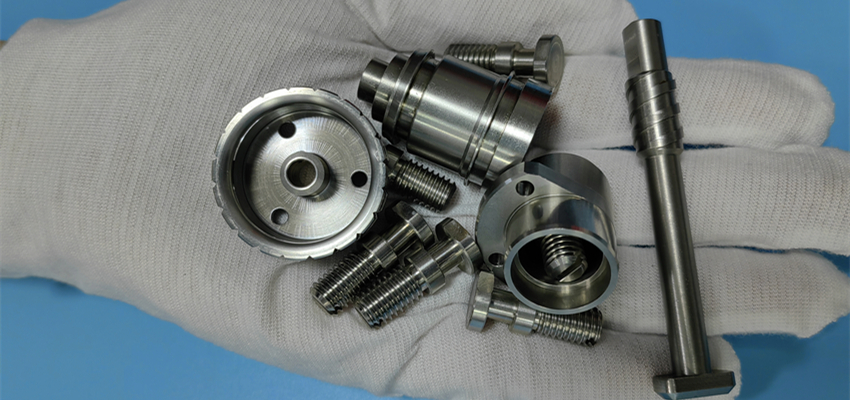
Titanium Machining:
Step into the realm of high-performance materials with our custom titanium machining services. Renowned for its exceptional strength-to-weight ratio and corrosion resistance, titanium components from Falcon are precision-crafted for applications in aerospace, medical, and industrial sectors.
Properties: High strength-to-weight ratio, corrosion-resistant, and biocompatible. Widely used in aerospace, medical implants, and high-performance applications.
CNC Precision Machining offers a combination of accuracy, efficiency, cost-effectiveness, and versatility, making it a preferred manufacturing method across diverse industries. These benefits contribute to improved overall productivity and the ability to meet stringent quality requirements.
The benefits of CNC Precision Machining are numerous and contribute to its widespread use in various industries. Here are some key advantages:
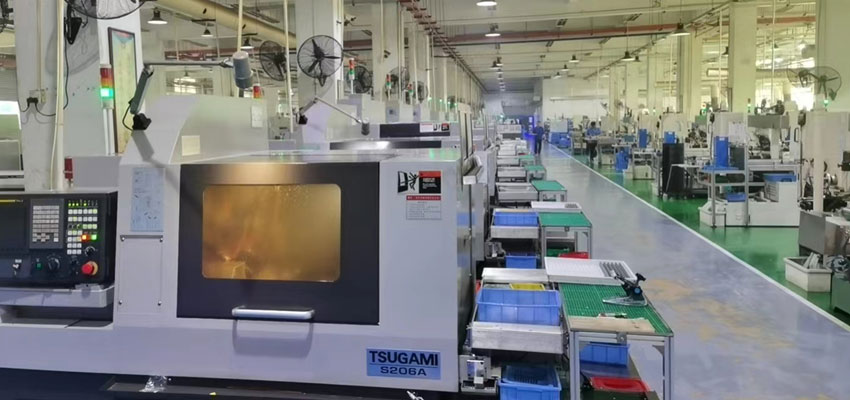
A. Improved Accuracy and Consistency:
High Precision: CNC machines operate with high precision and can achieve tight tolerances, ensuring that machined parts meet exact specifications.
Consistency: CNC machining offers consistent and repeatable results, reducing variations in the quality of produced parts.
B. Increased Efficiency and Productivity:
Automation: CNC machines are automated, allowing for continuous and unattended operation. This leads to increased production efficiency and reduced labor requirements.
Faster Setup Times: CNC machines can be programmed quickly for different jobs, minimizing the time required to set up and switch between tasks.
High Speeds and Feeds: CNC machining can operate at high speeds, resulting in faster material removal and shorter production cycles.
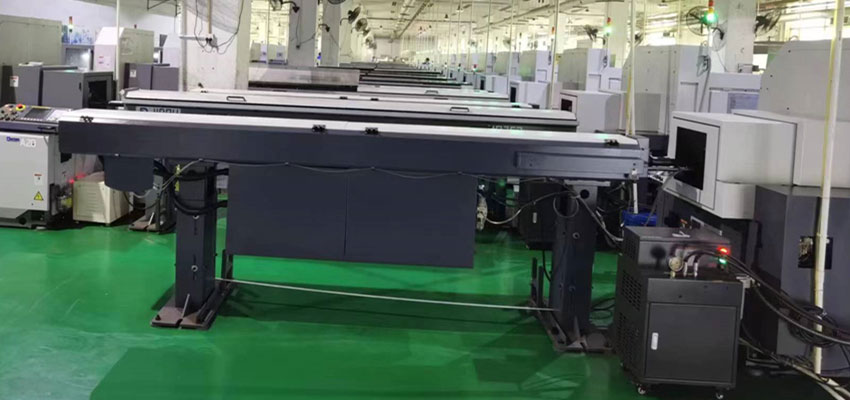
C. Cost-Effectiveness of Precision Machining:
Reduced Scrap and Waste: The accuracy of CNC machining minimizes errors and waste, reducing the need for rework and scrap materials.
Lower Labor Costs: Automation and unattended operation mean reduced labor costs compared to manual machining processes.
Versatility: CNC machines can handle various materials and produce complex shapes, eliminating the need for multiple specialized machines and reducing overall costs.
Optimized Tooling: CNC machining allows for the optimization of tool paths and cutting strategies, extending tool life and reducing tooling costs.
D. Flexibility and Customization:
Versatile Materials: CNC Precision Machining can be applied to a wide range of materials, including metals, plastics, and composites.
Complex Geometries: CNC machines can produce intricate and complex parts that may be challenging or impossible to manufacture using traditional methods.

E. Quality Control:
Consistent Quality: CNC machining ensures consistent quality across large production runs, reducing the likelihood of defects.
Quality Monitoring: CNC machines often come equipped with sensors and monitoring systems to detect issues in real-time, contributing to improved quality control.
F. Adaptability to Design Changes:
Quick Prototyping: CNC machines can be used for rapid prototyping, allowing for quick iteration and testing of designs.
Design Changes: Modifications to the machining program can be easily implemented, facilitating adaptability to design changes without significant downtime.
CNC Precision Machining finds extensive applications across various industries due to its ability to produce accurate and complex components. Here are specific applications of CNC Precision Machining in the mentioned industries:
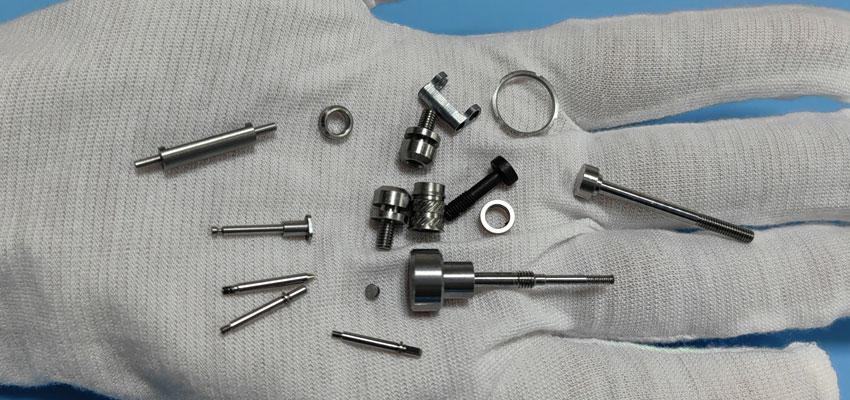
Medical Machining:
In the realm of precision medical machining, precision is paramount for life-saving innovations. Falcon CNC Precision Machining sets the gold standard for medical applications. From intricate surgical instruments to critical implant components, our precision engineering contributes to the success of medical breakthroughs, ensuring the highest standards of accuracy and biocompatibility.
Typical medical components made by CNC Precision Machining are:
Implants and Prosthetics: CNC machining is used to manufacture intricate and customized medical implants and prosthetic devices with high precision.
Surgical Instruments: Precision machining is employed to produce surgical tools and instruments with intricate geometries and sharp edges.
Dental Components: CNC machining is utilized in the production of dental implants, crowns, bridges, and other dental components.
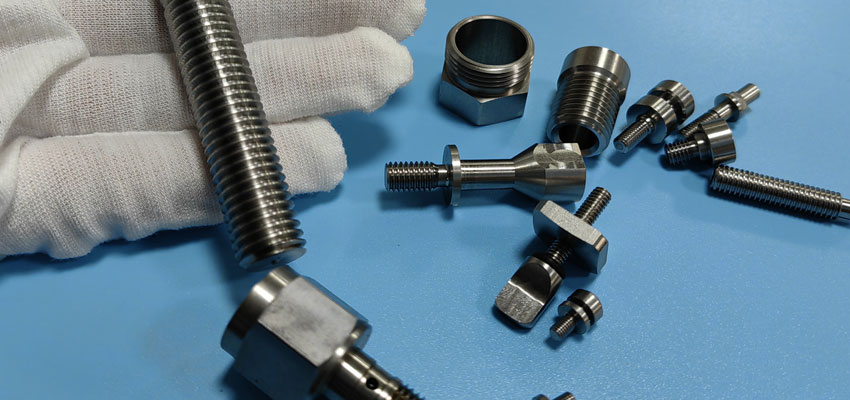
Automotive Machining:
In the fast-paced world of automotive engineering, precision is the driving force. Falcon excels in CNC Precision Machining for automotive applications. From critical engine components to intricate transmission parts, our state-of-the-art machinery guarantees accuracy and durability. We contribute to the efficiency and performance of vehicles, helping our automotive partners stay at the forefront of innovation.
Typical automotive components made by CNC Precision Machining are:
Engine Components: CNC machining is widely used for manufacturing engine components such as cylinder heads, pistons, and crankshafts with precise tolerances.
Transmission Parts: Precision machining is applied to produce transmission components, gears, and shafts used in automotive transmissions.
Chassis and Suspension: CNC machining is used for producing complex and lightweight chassis components, suspension parts, and steering components.
Optical Machining:
Precision optics require cutting-edge technology and uncompromising attention to detail. We specialize in CNC Precision Machining for optical applications, crafting lenses, mirrors, and intricate optical components. Our commitment to achieving the highest standards of surface quality and dimensional accuracy contributes to innovations in optical technology across diverse industries.
Typical optical components made by CNC Precision Machining are:
Lens Manufacturing: CNC Precision Machining is employed in the production of optical lenses with precise curves and surface finishes.
Precision Optics: CNC machines are used to manufacture various optical components, including mirrors, prisms, and filters.
Camera Components: Precision machining is used for producing camera components with tight tolerances for the electronics and optics industries.
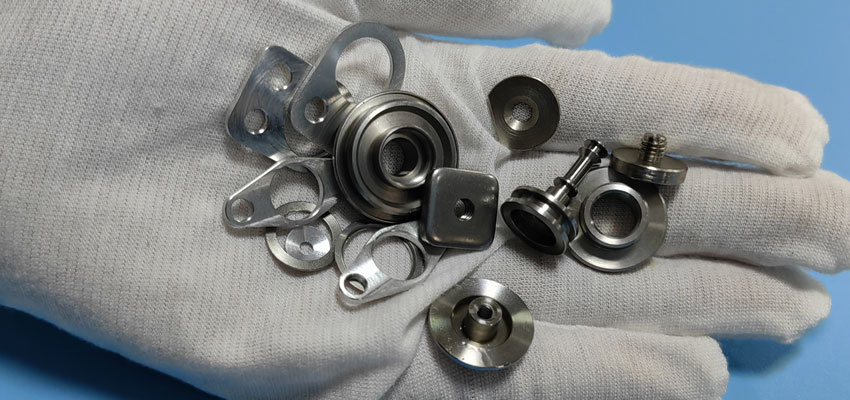
Consumer Electronic Machining:
In the dynamic world of consumer electronics, precision is synonymous with user satisfaction. Falcon Swiss excels in CNC Precision Machining for consumer electronic applications. From intricate components for smartphones to complex parts for wearables, our precision engineering ensures that your electronic devices stand out for their quality, reliability, and performance.
Typical electronics components made by CNC Precision Machining are:
Smartphone Components: CNC machining is utilized in the production of smartphone components, including metal casings, buttons, and camera modules.
Computer Parts: Precision machining is applied in the manufacturing of computer components such as heat sinks, connectors, and hard drive enclosures.
Wearable Devices: CNC machining is used for creating precise components in the production of wearable electronic devices.
Machine & Equipment Machining:
The backbone of industries lies in robust machinery and equipment. Choose us as your partner for CNC Precision Machining in this domain. From manufacturing equipment to industrial machinery components, our expertise ensures that your machines operate with optimal precision and efficiency. Trust us to contribute to the reliability and longevity of your industrial equipment.
Typical mechanical components made by CNC Precision Machining are:
Industrial Machinery: CNC Precision Machining is employed in the production of various components for industrial machinery, including gears, shafts, and housings.
Tool and Die Making: CNC machines are used in the fabrication of molds, dies, and tooling for various manufacturing processes.
Agricultural Equipment: CNC machining is applied in the production of components for agricultural machinery, such as tractor parts and implements.
These applications demonstrate the versatility of CNC Precision Machining across different industries, where the technology is utilized to produce high-quality, custom, and complex components with tight tolerances. The ability to work with a variety of materials makes CNC machining a valuable and widely adopted manufacturing method in today's industrial landscape.
The tolerance limits for CNC precision machining can vary depending on factors such as the specific machining process, the type of material being used, and the complexity of the part. Tolerances are specified to ensure that the machined parts meet the required dimensional accuracy. Here are general guidelines for common tolerance classes in CNC precision machining:
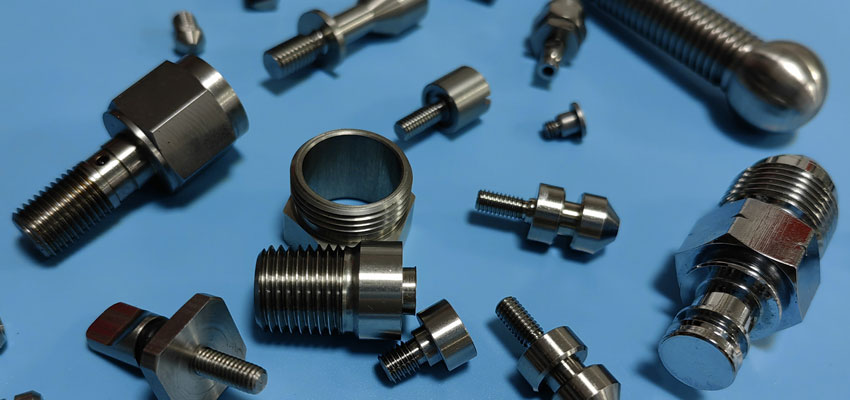
1. Standard Tolerances:
General Machining: ±0.005 inches (±0.13 mm) to ±0.001 inches (±0.025 mm)
High Precision Machining: ±0.0005 inches (±0.0127 mm) to ±0.0001 inches (±0.0025 mm)
Surface Finish:
2. Ra (Average Roughness):
Commonly ranging from 32 to 63 microinches (0.8 to 1.6 micrometers), but can be finer for certain applications.
Rz (Average Maximum Height): Often specified for certain critical surfaces.
3. Positional Tolerances:
Depending on Feature Size: Tolerance values can be specified as a function of the size of the feature being machined. Smaller features may have tighter positional tolerances.
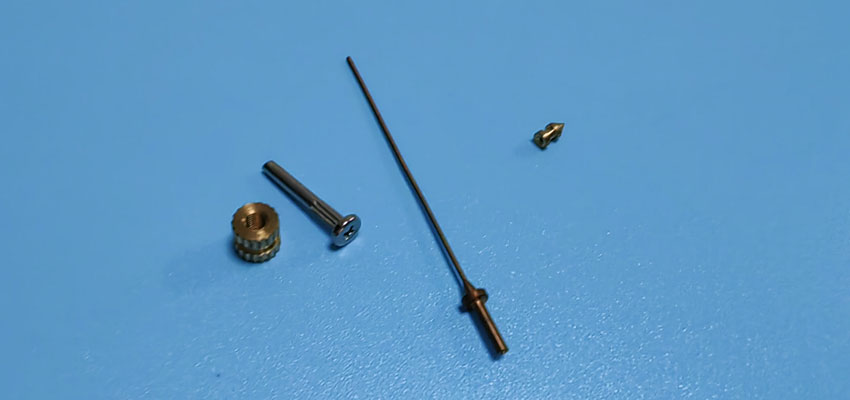
4. Geometric Tolerances:
Concentricity, Parallelism, Perpendicularity: Typically specified in the range of ±0.001 inches (±0.025 mm) to tighter tolerances depending on the application.
5. Cylindricity:
Often specified in the range of ±0.001 inches (±0.025 mm) or tighter.
Runout Tolerances:
6. Radial Runout, Axial Runout:
Commonly specified in the range of ±0.001 inches (±0.025 mm) to ±0.0001 inches (±0.0025 mm) depending on the application.
7. Hole Tolerances:
Hole Diameter: Depending on the size of the hole, tolerances can range from ±0.001 inches (±0.025 mm) to ±0.0001 inches (±0.0025 mm). H7, H8, H9 Classifications: Commonly used for specifying hole tolerances.

8. Thread Tolerances:
Unified Thread Standard (UTS): Tolerances specified by thread class, such as 2A, 3A for external threads, and 2B, 3B for internal threads.
It's important to note that these are general guidelines, and specific tolerance requirements should be determined based on the engineering and functional requirements of the part. Design engineers work closely with machinists and manufacturers to define the appropriate tolerances for each feature on a part, taking into consideration factors such as material, function, assembly requirements, and cost constraints. Tighter tolerances generally require more precise machining processes and may involve additional inspection and quality control measures.